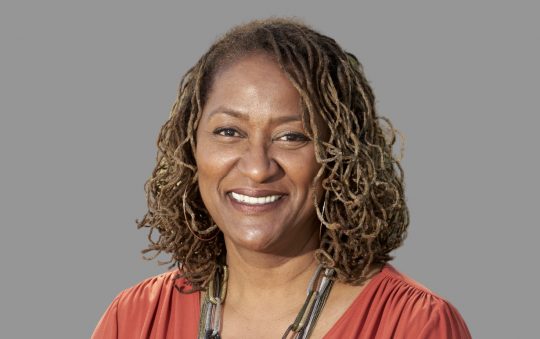
The COVID-19 pandemic has affected many multiethnic communities in Los Angeles County. This includes adverse physical, social, and mental health outcomes and a large economic burden. The Black community has not been spared. The Black community accounts for 8.2% of L.A. County’s population yet represents 13% of COVID-19 related deaths. Also, many L.A. Black residents are essential workers, increasing the risk of contracting COVID-19.
In addition to these glaring statistics, COVID-19 vaccine uptake within the Black community occurs at a lower rate than the White community. To understand why COVID-19 vaccine uptake is low among the Black community, the UCLA Health, CTSI Community Engagement & Research Program, led by Dr. Arleen Brown, learned about COVID-19 vaccine acceptance from local community members.
From November 2020 to January 2021, UCLA conducted 13 single-race/ethnicity virtual focus groups on COVID-19 vaccine hesitancy and acceptability. Three of these focus groups were conducted with 17 L.A. Black residents from various ages, essential occupations, and low-income zip codes.
The primary concerns raised were regarding a lack of vaccine information, a need for additional vaccine outreach, barriers to accessing vaccination, and a desire for sensitive, respectful and equitable treatment.
The voices from these participants gave the UCLA Health team the tools to share their concerns with health leaders in the State of California through the UCLA led STOP COVID-19 CA initiative.
What we Found
“The U.S. has never been 100% pro-Black, so why are we getting preferential treatment for a vaccine now?”
This quote reflects many concerns shared across all three focus groups with Black persons. Many participants reflected on systemic racism and mistrust of medical research. These contribute to skepticism about the COVID-19 vaccine. From the ethical violations in the Tuskegee study, the unauthorized use of Henrietta Lacks’ cells and the biases that Black people face in the healthcare system today, the past comes up when considering future medical care. How does our community, who have experienced so much medical distress, reconcile with the implications of historical medical mistakes and a global pandemic that negatively impact the health and well-being of the Black community?
There is no single answer, but we can take steps to get to a place where our concerns (collectively and individually) are addressed, we feel heard, and we are appropriately informed. An initial start here addresses the community concerns by providing accurate facts about the COVID-19 vaccine from UCLA physicians.
Frequently Asked Questions
The following are additional frequently asked questions that arose in the focus group:
- Why should I getvaccinated?
- Vaccination protects you, your family, andyour community from any symptomatic COVID-19 illness and reduces the chance of hospitalization and Being unvaccinated may increase your risk of COVID-19 and serious long-term complications. The vaccine was tested on diverse communities, including Black participants and participants with chronic disease. Each vaccine was shown to protect against COVID-19 equally in all communities, including age, race/ethnicity, and chronic illness.
- Should I get the vaccine if I already had COVID-19?
- Protection from the vaccine is safe andcan prolong your immunity. You can wait up to 90 days aftera COVID infection to be vaccinated. But you can receive it ten days after you recover.
- What is in the vaccine?
- The COVID-19 vaccine consists of four ingredients: Protein (mRNA), fats (called lipids), salt, and sugar (preservatives). The vaccinewas NOT developed using: animal products (halal), thimerosal, or fetal The J&J vaccine used cells that came from fetal tissue 40-50 years ago to help make the vaccine. The J&J vaccine has no fetal tissue in it.
- These vaccines do not contain any parts of the coronavirus.They cannot cause COVID-19. These types of vaccines were studied for years before COVID-19.
- Which vaccine is better?
- No one vaccine is better than the other. Individuals usually cannot choose which vaccine to take. Now with the one dose J&J vaccine people can choose if it is available. Moderna, Pfizer and J&J vaccines are equally effective against death and severe health effects from COVID-19. All vaccines have also shown to still be effective against the variants of COVID-19 in terms of reducing death and severe illness or serious side effects from COVID-19.
- Why are Black/African Americans being encouraged to take the vaccine?
- The Black community has high COVID-19 infection rates and is more likely to be hospitalizedand die from COVID-19. This is due to occupational risk as essential workers and insufficient healthcare access.
Next Steps
Being informed about the vaccine will help members in our community make educated and informed decisions about vaccination. Finding up-to-date and accurate information can be challenging, but the STOP COVID-19 initiative is here to help.
Visit today to learn more: STOP COVID-19 CA: https://www.stopcovid-19ca.org/about-us






